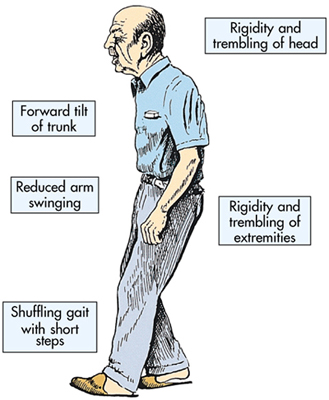
LONDON (Reuters) – The severity of Parkinson's disease symptoms could be monitored remotely by analyzing speech patterns, saving health authorities time and money and easing the burden on patients, scientists said Wednesday.
Researchers from Britain and the United States analyzed almost 6,000 speech recordings from 42 people with Parkinson's and developed algorithms using the data to estimate how bad the symptoms were.
The results, published in the Royal Society's journal Interface, showed the algorithms were close to assessments made by doctors.
"Currently, monitoring requires frequent visits to hospital where people with Parkinson's are physically examined by expert clinicians in order to assess their symptom severity, putting a strain on both patients and hospital resources," said Max little of Britain's Oxford University, who worked on the study.
The researchers said they believed the technique, which could be used with patients' speech recordings or over the telephone, could help ease the resource burden on health systems and make it possible to run large-scale trials of experimental treatments for Parkinson's.
Parkinson's is a fatal and incurable brain disease that affects between one percent and two percent of people over the age of 65. it often affects the patient's ability to speak clearly, and sufferers also have tremors, sluggish movement, muscle stiffness and difficulty with balance.
Little said the study provided good evidence that speech impairment and the average overall severity of other Parkinson's disease symptoms are very closely linked, suggesting that symptom severity can be measured just by analyzing speech.
"this sort of remote monitoring — or 'telemonitoring' — of people's health is particularly important for people with Parkinson's who may find it difficult to make frequent hospital visits," he said in statement.
"The hope is that our research could pave the way for very large clinical studies of new treatments for Parkinson's where the sort of frequent monitoring required would not otherwise be affordable."
The researchers compared estimates made using the new technique with assessments made by doctors and rated on a standard measure for Parkinson's severity called the Unified Parkinson's Disease Rating Scale (UPDRS).
They found that, based on around 140 speech samples from each of the 42 patients, the estimates made using the algorithms differed from doctors' UPDRS ratings by around two points.
SOURCE: link.reuters.com/max85q Journal of the Royal Society Interface, online November 17, 2010.